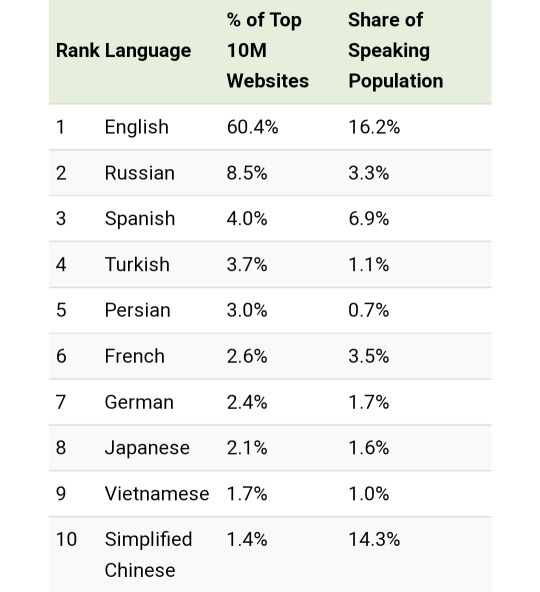#japanese lingblr
Text
[Japanese→English] @panmaumau Tweet — Color Coded Translation

————————————————————————
何も知らない生き物の顔
なにもしらないいきもののかお
The face of a living thing that doesn’t know anything.
————————————————————————
Please correct me if I made a mistake
#color coded translation#japanese#japanese vocabulary#study japanese#japanese lesson#easy japanese#beginner Japanese#learning japanese#japanese lingblr#japanese linguistics#learn japanese#japanese langblr#japanese learning#japanese language#japanese vocab
85 notes
·
View notes
Text
We tend to think languages of different groups within the same family are so much more difficult to learn than languages of the same group until we try to learn a language that is actually from a different family
Sure, as a Portuguese speaker, it's harder to learn English than to learn Spanish, but it doesn't compare to trying to learn Inuktitut or Japanese, than you find out English and Spanish are actually more of less at the same level of difficulty
When you start studying Chinese or Tupi you think "dang, it's not enough to replace a word for another and change word order, I have to think about the world around me in a completely different way, I have to relearn from scratch what it means to speak a language"
#languages#lingblr#langblr#language learning#language families#language groups#indo european#english#portuguese#spanish#inuktitut#japanese#tupi#tupi guarani#chinese
86 notes
·
View notes
Text
Duolingo with the relatable content

710 notes
·
View notes
Text
I noticed in Japanese that people will say いい匂いする when they smell something good, and I wondered why it wasn't いい匂いしてる, since you're currently smelling it, so it should be in present continuous form.
But then I realised. English does the same thing. We don't say "I'm smelling something good", we say "I smell something good". I tried to think of other verbs that behave in the same way, and I came up with: see, taste, feel, hear (note: all 5 main senses), think, understand, know, sympathise, get along (with someone), like.
Besides the sense-based verbs, the other verbs all indicate stability. The verb is being done and it will stay that way unless otherwise disturbed.
e.g. "I think jellyfish are cool (and I will most likely still think this in 5 years)".
They also imply at least a small amount of time in the past spent in this state.
e.g. "I understand how an internal combustion engine works (and I have understood this for at least a few hours already)"
But the sense verbs seem like an exception. They don't necessarily indicate a stable state."I smell dog shit" doesn't imply that you'll continue to smell dog shit for any amount of time - you probably just walked past it and on your next whiff you might not smell it at all.
A bit of googling led me to this really cool paper which explains that these sense based verbs are stative verbs and therefore they are used to declare something about your own state (and also can't usually be used in the progressive aspect, although there are exceptions which is what the paper is about). This makes me think that all of the verbs I mentioned above are exactly the same, and that it's not the tense or aspect that implies the continuous state of jellyfish love, it's just a coincidence that all of those verbs generally tend to be long lasting states.
134 notes
·
View notes
Text

yo, this is mitsu!
i am currently studying for uni ( a classic uni exam and an english exam for linguistic majors in my country) and also japanese
thinking it would be a cute way to track my studies and to get/give motivation as well!
#anime#studyblr#motivation#dark academia#chaotic academia#light academia#student#student life#language#language learning#kpop#jpop#studyspo#bookblr#workblr#genshin impact#langblr#lingblr#korean studyblr#japanese studyblr#chinese studyblr#introduction#new studyblr#japanese#nihongo#pinned intro#study motivation#education#school#study tips
10 notes
·
View notes
Text
as there's now an increase in people interested in languages in mcyt- does anybody want to join a language learning minecraft server? It's not limited to just english and spanish, but any language!!
The server has 2 maps: The Earth map and The Resource world
Everyone is so nice and friendly to new people :D (I would know I've been playing since Jan 2021) also queer and ND friendly (as many members are both lmao)
Some cool pictures from around the server:
(Details about joining the server below as well)











IP is: play.aroundtheworldmc.net
minecraft version: 1.19.3
Discord Link: https://discord.gg/Gar9Q8Ds
Map Link: https://map.aroundtheworldmc.net/
Server Lore Wiki Link: https://atwmc.miraheze.org/wiki/Main_Page


#minecraft#minecraft servers#langblr#lingblr#language learning#mineblr#minecraft builds#gonna list all the counties' languages that appear in order of appearance now#french#welsh#german#polish#esperanto#korean#japanese#italian#if you're learning a new language from the qsmp and love minecraft#i highly recommend the server#lovely people#all of them are nerds#atwmc has been around since 2017 but it is still a very small server
53 notes
·
View notes
Text
Omg omg omgggggg
Look what I just discovered!!
Pear 🍐 in Japanese is 梨(nashi)
Pear 🍐 in Bengali is নাশপাতি (nashpati)
How tf?👀👀👀👀
I just realised this while watching a j-drama lmaoooo
So, I tried researching a bit more...
It seems according to the linguists the Bengali word comes from Classical Persian. Whereas the Japanese word's origin has multiple theories... Maybe from Old Chinese lí or from na+shiro (middle+white, referring to the pulp of the fruit)? But there is no consensus.
So, my hypothesis is that there might have been some connection. I know these two languages come from completely different families so either the Japanese borrowed it from Bengalis or Persians or we borrowed it from them. Because the similarities are too much to ignore. Also the fact that Bengal and Japan had trade relations since ancient times. As well as the fact the Bengal was largely Buddhist country back then, and monks would travel to and from East Asia.... Aaaaajshdgsvgshsgsh I wanna knowwwwww Why are there so less sources on this?!
There are also other words in common that don't seem to have any recent connections:
কৈ (koi) a kind of perch fish in Bengali and 鯉(koi) a kind of carp in Japanese
鮪(maguro) which is tuna in Japanese and মাগুর (magur) which is catfish in Bengali
বোকা (boka) is fool in Bengali and 馬鹿 (baka) is fool in Japanese
I remember asking in Quora if there was any connection between these words and my idea just got pushed aside by people saying it's just a coincidence... Maybe it is... But who knows?
Any linguist out here who can help? ここに助けてくれる言語学者はいますか?
#bengali#japanese#langblr#lingblr#linguistics#languages#south asia#east asia#india#bangla#bangladesh#west bengal#bengal#tripura#assam#japan#日本語#言語学#梨#語#ベンガル語#インド#বাংলা#ভাষা#নাশপাতি
123 notes
·
View notes
Text
him: if you can tell me the rōmaji transcription of あお i’ll give you head
me: ayo?? 🤨
#langblr#language#language blog#languageblr#language meme#language memes#linguistics#linguistics humor#language learning#english#linguistics memes#linguistics blog#lingblr#studyblr#language lover#lingblog#linguistics tumblr#languages#linguistics jokes#japanese language#japanese#romaji#ao#transcription#ayo
52 notes
·
View notes
Text
youtube
It’s #NationalTempuraDay! Did you know that the name of this famous dish probably comes from Portuguese, not Japanese? Find out more in our video about the etymology of “Japan”!
#national tempura day#tempura day#tempura#japan#japanese#portuguese#etymology#history#words#language#linguistics#word nerd#wordnerd#history of the english language#history of english#historical linguistics#lingcomm#lingblr#video#youtube
3 notes
·
View notes
Text
The Most Used Languages on the Internet
Online content on the world wide web is consumed in thousands of different languages.
Some are more common than others, but it’s interesting to see that the online use of a language doesn’t always reflect how many people speak it. For example, Hindi is the third most spoken language worldwide, but it isn’t one of the top languages used on the internet.
Here’s a look at the top 20 most used languages on the internet, compared to their real-world use among the global population.

#langblr#lingblr#languages#chinese#english#german#japanese#vietnamese#russian#linguistics#interesting facts
71 notes
·
View notes
Text
[Japanese->English] @id_tomo January 26th 2023 3:36 PM Hellotalk Post - Color Coded Translation
Link to original post

—
うん てん めん きょ
やっと運転免許とれたよ!
I finally got my driver’s license!
—
Please correct me if I made a mistake
$5 translation commissions here
#color coded translation#japanese#study japanese#learning japanese#japanese language#japanese vocabulary#learn japanese#japanese to english translation for japanese learners#japanese to english#japanese linguistics#japanese lesson#japanese learning#japanese langblr#japanese lingblr#japan life
13 notes
·
View notes
Text
🌳🇯🇵🏫📖(・ω・📖(・ω・๑)📚🌳
Kids in Japan learn common kanji over 12 years of schooling
🌠So be patient w/ yourself!
🗣️& ask this question:
-📚ー
📌𝐉𝐚𝐧𝐮𝐚𝐫𝐲 𝐉𝐚𝐩𝐚𝐧𝐞𝐬𝐞 𝐖𝐨𝐫𝐝 𝐨𝐟 𝐭𝐡𝐞 𝐖𝐞𝐞𝐤𝐝𝐚𝐲 𝐰//𝐐𝐔𝐈𝐙𝐁𝐎™
【○○は何と読みますか】
ʀᴇᴀᴅ&ʟɪꜱᴛᴇɴ ʜᴇʀᴇ:
‐📝ー
(๑・ω・)[๑・▿・๑](・ω・๑)
We hope that today’s set of Japanese example conversations will truly help you understand the vocabulary!
You can follow along with the colour-coded examples📖🎧
#japanese#langblr#language#language learning#languages#learnjapanese#japanese langblr#japanese language#japan#kiki#koko#langblog#learn japanese#language stuff#lingblr#Languages#日本語教師#日本語#日本語の勉強#日本語勉強#単語#studyblr#japanese grammar#grammar
2 notes
·
View notes
Text
Language typology
Syntax
You can read more about syntax here.
Languages can also be categorized based on whether the three essential elements of a sentence—the subject, verb, and object—have a fixed order or are freely ordered. For example, English uses subject-verb-object order to make sentences like “The dog chased the squirrel.”
Fixed word order
In languages with fixed word order, the relative order of the subject (S), object (O), and verb (V) is normally the same. Fixed word order languages fall into one of six types according to how they order these three elements, as follows:
SOV (Japanese): John-ga tegemi-o yon-da. (John-subject letter-object read-past) — John read the letter.
SVO (Mandarin): Zhāngsān shōudào-le yī-fēng xìn. (Zhangsan receive-perfective one-classifier letter) — Zhangsan received a letter.
VSO (Irish): Léan na sagairt na leabhair. (read-present the priests the books) — The priests are reading the books.
VOS (Nias): Irino vakhe ina-gu. (cook rice mother-my) — My mother cooked rice.
OVS (Hixkaryana): Toto tahosā-ye kamara. (man grab-distant past jaguar) — The jaguar grabbed the man.
OSV (Nadëb): Awad kalapéé hapUh. (jaguar child see) — The child sees the jaguar.
The most frequent word order is SOV, followed by SVO—most fixed word orders have one of these two orders. SOV order dominates Asia, Australia, and New Guinea, such as in Japanese, a Japonic language of Japan. SVO order dominates sub-Saharan Africa, Europe, and around the Mediterranean, as well as an area extending from China and Southeast Asia into Indonesia and the western Pacific, like Mandarin, a Sino-Tibetan language spoken in China, Singapore, and Taiwan.
The next most common order is VSO, followed by VOS. VSO is found in eastern Africa, North Africa, the westernmost part of Europe, the Philippines, the Pacific, Mesoamerica, and the Pacific Northwest of North America, such as in Irish, an Indo-European language of Ireland. As for VOS, though it is less common, it is found pretty much everywhere except mainland Africa and Eurasia, like Nias, an Austronesian spoken in Indonesia.
The most infrequent word orders are OVS and OSV, with OVS languages mostly spoken in South America, such as Hixkaryana, a Carib language of Brazil, and OSV languages, like Nadëb, a Nadahup language spoken in Brazil, being very rare.
Free word order
In many languages, the order of words is not fixed. Such languages have free word order. In a sentence with a transitive verb, the sentence’s elements can appear in any of the six orders.
Here is the same Russian sentence in each of the possible word orders, meaning “I see the girl”, Я вижу девушку:
SOV: Ya devushku vizhu. (I girl see)
SVO: Ya vizhu devushku. (I see girl)
VSO: Vizhu ya devushku. (see I girl)
VOS: Vizhu devushku ya. (see girl I)
OVS: Devushku vizhu ya. (girl see I)
OSV: Devushku ya vizhu. (girl I see)
Head-initial versus head-final ordering
According to their syntax, languages can also be classified into head-initial and head-final ordering.
Each phrase in a sentence has a head: the head of a verb phrase is the verb; the head of a professional phrase is the proposition; the head of a noun phrase is a noun. Many languages with fixed word order fall into one of two types according to whether they position the head as the first or last element of the phrase.
For example, while the phrasal constituents of English are consistently head-initial, those of Japanese are consistently head-final:
English is an SVO head-initial language:
VP: bought books (V NP)
PP: at home (P NP)
NP: foot of the table (N PP)
Japanese is an SOV head-final language:
VP: hon-o katta (“books bought”; NP V)
PP: jitaku de (“home at”; NP P)
NP: tenure no ashy (“table of foot”; N PP)
However, many fixed word order languages mix it up a bit: Dutch, German, and Mandarin use a mixture of head-initial and head-final orders.
58 notes
·
View notes
Text
[Japanese] u/Chiafriend12 r/JapaneseInTheWild April 3rd 2023 Reddit Post Text Transcription
POST TITLE: [Advanced] One writer's opinion of Americans, c.1930
SOURCE: Unknown
Link to original post

—
米國人
米國人には必要のない場合でも自分を餘り主觀的に表現しようする惡癖がある。
この惡癖のためいつも舞臺の主役を勤める代表者たらうとする、俗にいふ 『出しゃばり』過ぎる。
米國人位自己を忘却し得ない國民は世界に無い。
米國人は無邪氣だといふのも間違のない 彼等の半面ではあるが、多くの場合に彼等は不釣合で粗雜な感を與へる。
代表者であると自任するといふことも威嚴のある一見識であると見ることが出來る、尊敬に價するには相違ないが、米國人がそれを維持する為め人間の力を無益に浪費する點を指摘したい。活動して居るといふことを他人に認めさせようとすることは米國人に限つたことでないが、彼等位自己廣告を先天的に持つて產れた國民はゐない。こゝに一人の富豪の米人があるとする。彼は力を舉げて自分の富を説明するであらう、彼は 『どんな生活をしてゐるか』 を人に示さうとするであらう。彼は金錢の力で自己廣告をするであらう。客人でも彼の所へ来
—
Please correct me if I made a mistake
#japanese langblr#japanese#japanese literature#japanese books#transcription#lingblr#languages#language learning#langblr#languageblr#japanese language#日本語#日本語訳#日本語版#日本書籍#日本の書籍#日本の本#日本人#米国人#日本書#日本書紀#書記#読書#書物#書き取り#書き取る#書写#写本#transcribed#old books
6 notes
·
View notes
Text
Japanese is not alone, it has a family. For some reason the Ryukyuan languages are classified as being dialects of Japenese within Japan, despite the fact that they're not even mutually intelligible with eachother let alone a totally different branch of the family, and the fact that they clearly diverged at least as long ago as the Romance language family did from eachother.
Compare Okinawan
う名前や何やいびーが?
(u naamee ta nuu yaibiiga?)
with Japanese
お名前はなんですか?
(o-namae wa nan desu ka)
Meaning "What is your name"

6 notes
·
View notes
Text



5 notes
·
View notes